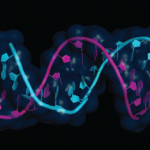Dr. Klippel emphasizes that rheumatologists have a role beyond research. “Rheumatologists have stepped into major voluntary leadership roles. At the community level, every AF chapter has a rheumatologist involved,” he says. “These practitioners create teams for AF Walks to create a sense of awareness within the community and promote the role of the rheumatologist in caring for these patients.”
For rheumatologists seeking information and educational materials for themselves or their patients, the AF can help there as well. “The Foundation has a goal of being a true resource of accurate information for people who have or want to learn more about arthritis,” says Dr. Klippel. “We believe that educating people about chronic diseases such as arthritis is critically important, and we take this job seriously.” In addition to a variety of brochures and other patient information pieces, meetings such as an annual research conference, and publications such as Arthritis Today magazine, the AF is currently preparing the 13th edition of its Primer on the Rheumatic Diseases.
“No matter what level of skills, abilities, or interest you have, you can make a contribution,” says Dr. Hardin. Practicing rheumatologists are our partners in ensuring the best possible care for patients with arthritis.”
Joanne Kaldy is a medical journalist based in Maryland.
AF Howley Prize Recipient: Profile of Vision and Focus

The Howley Prize recognizes those researchers whose contributions during the previous five years have represented a significant advance in the understanding, treatment, or prevention of arthritis and rheumatic diseases.
Gary S. Firestein, MD, has been involved in arthritis research for several years. With numerous studies and countless papers and presentations under his belt, he remains philosophical and modest about his accomplishments, including being named the 2006 Lee C. Howley Sr. Prize for Research in Arthritis recipient. “I’m enormously gratified and honored by this recognition. But one doesn’t go into this line of research to win awards,” he says. “Our touchstone over the years is that we were—and are—trying to improve patients’ lives.”
Over the years, Dr. Firestein’s research efforts have focused on the pathogenesis of rheumatoid arthritis. His laboratory helped define the synovial cytokine profile of RA and demonstrated the dominance of macrophage and fibroblast products as opposed to the expected T-cell cytokines. These studies contributed to the development of the highly effective anti-TNF approaches in RA. Recently, Dr. Firestein focused his attention on synoviocyte transformation in RA as a mechanism of joint destruction. His group was the first to describe somatic mutations in the p53 tumor suppressor genes in the RA synovium. The mutations were subsequently demonstrated to be dominant negative and increase the cartilage invasiveness of these cells. Dr. Firestein’s laboratory has also worked extensively on metalloproteinase and cytokine gene regulation in synoviocytes by MAP kinases and NF-kb as well as on novel gene therapy approaches to RA.

